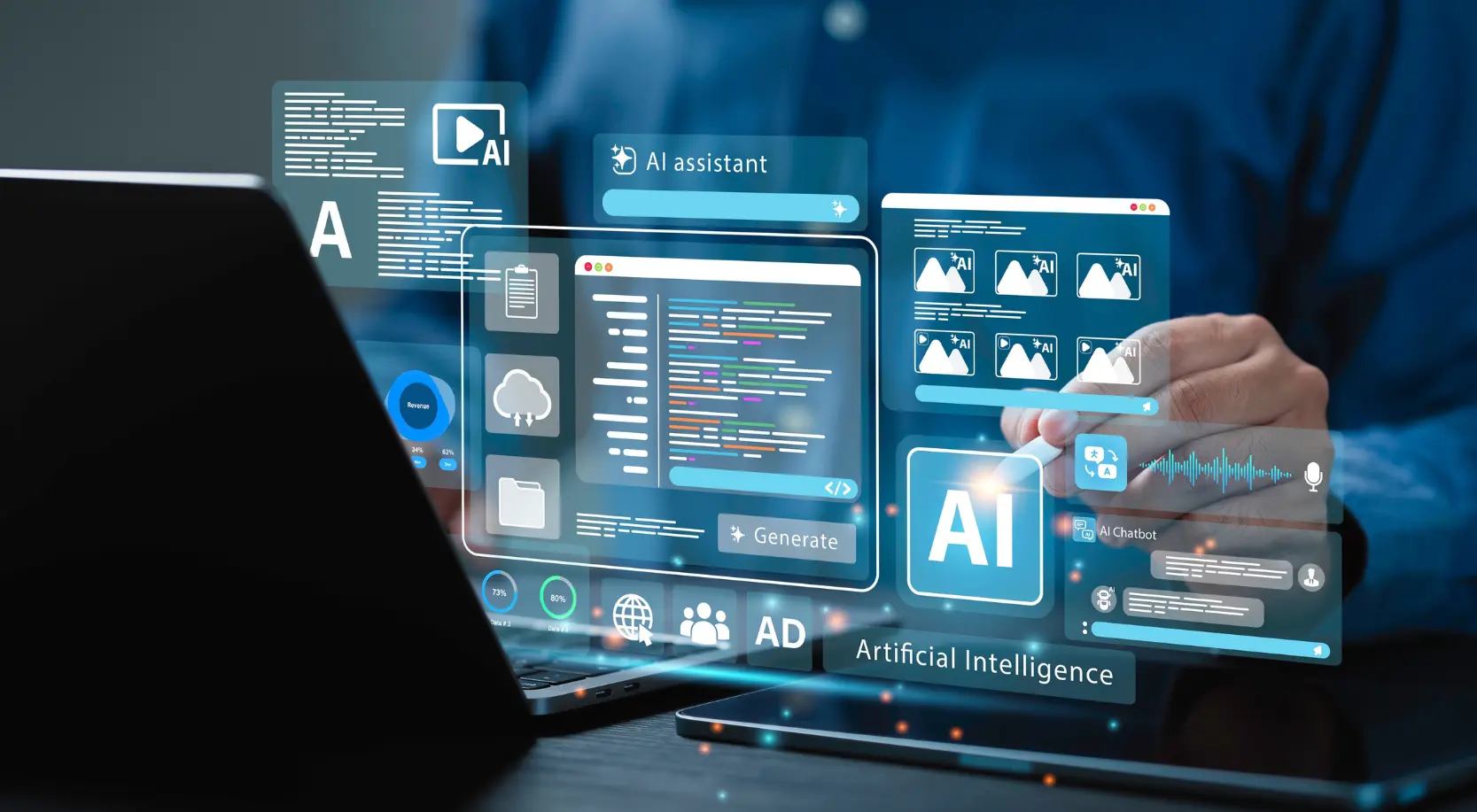
Introduction: Improving Business Flexibility with Efficient Project Management
Business agility is the capacity of an organization to rapidly adjust to market shifts, technological changes, and evolving customer demands. It’s essential for maintaining competitiveness and capitalizing on new opportunities in today’s fluctuating business environment. Organizations must be flexible, adaptable, responsive, and innovative to meet these agile needs.
Project and Delivery Managers are key in fostering this agility, as they oversee projects’ execution with flexibility and speed. They need to decide quickly, prioritize client requirements, efficiently mobilize resources, handle risks and issues, align with company objectives, and guarantee timely and cost-effective project completion.
To keep pace with changing trends, Project and Program Management practices must adapt while maintaining foundational elements from Waterfall and Agile methodologies. Integrating AI can also offer continuous improvements and boost the achievement of business goals.
- Typical Project Hurdles or Limitations.
- Scope Expansion: Unchecked changes or escalation of project scope, resulting in project delays and cost inflation.
- Financial Excess: Surpassing the planned project budget as a result of unexpected expenses, affecting economic stability.
- Deadline Pressures: Adhering to strict timelines while accommodating unplanned holdups, influencing timely project completion.
- Resource Management: Optimal distribution and use of resources, dealing with shortages, and avoiding resource overuse.
- Risk Mitigation: Detecting, evaluating, and lessening risks, along with adjusting to sudden complications.
- Stakeholder Involvement: Ensuring stakeholders are kept up-to-date and managing their varying interests, which affects project endorsement and triumph.
- Communication Gaps: Guaranteeing clear communication channels and circumventing miscommunications, which can derail team cohesion and project momentum.
- Quality Assurance: Upholding excellence in quality despite limitations, tackling potential reductions in standards due to financial or temporal constraints.
- Team Interaction: This involves handling internal team disputes, fostering motivation, and monitoring performance, which contributes to overall efficiency and project results.
- Technological Integration: Confirming the adequacy of project management software and handling tech glitches is crucial for accurate project tracking and administration.
Project managers can address these difficulties by pursuing ongoing education and equipping their teams with the newest skills and tools. They should foster a culture that emphasizes creative problem-solving, improve communication to keep everyone on the same page and use cutting-edge project management software like AI to refine workflows and offer valuable insights into projects.
The Rise of AI in Project Management
AI is modernizing how projects are managed by automating mundane activities, generating reports, and overseeing timelines. It provides foresightful analysis to enhance decision-making processes, identifies possible dangers and prospects, and fosters teamwork with advanced communication tools. AI amplifies project productivity by improving the allocation of resources and refining procedures. Additionally, it aids in the management of risks, performance, and stakeholders, sharpens data evaluation for more precise conclusions, and improves the planning and timing of projects through better utilization of timescales and resources.
The following tables summarize (not restricted to these alone) how AI can be applied across different project management methodologies.
| Methodology | Use Case | Description |
| Waterfall | Project Planning | AI automates the creation of detailed schedules and Gantt charts, defining each project phase and timeline. |
| Risk Assessment | Identify the potential risks in each phase and suggest mitigation strategies. | |
| Agile | Sprint Planning | Assists in generating sprint backlogs and prioritizing tasks based on project needs and team capacity. |
| User Story Generation | Creates user stories and acceptance criteria based on project goals and historical data, improving requirement quality. | |
| Scrum | Daily Stand-Ups | Generates summaries and action items from daily stand-up meetings, providing actionable insights and tracking progress. |
| Sprint Review/Retrospective | Analyzes sprint performance data and offers recommendations for process improvements. | |
| Kanban | Task Management | Automates task movement between Kanban board columns based on real-time data, ensuring proper prioritization. |
| Flow Optimization | Analyzes workflow patterns and suggests adjustments to enhance task throughput and reduce bottlenecks. | |
| Hybrid | Custom Methodology Design | Tailors’ process by integrating elements from different methodologies, creating a customized framework for specific needs. |
| Adaptive Planning | Adjusts project plans dynamically, incorporating insights from various methodologies to adapt to changes and optimize performance. |
A few examples of AI-based project management tools that can be used in real-time project management processes.
| Use Case | Practical Application | AI Project Management Tools | Outcome |
| Planning and Scheduling | Automated Project Planning | AI-driven project management software- Microsoft Project with AI capabilities, Forecast, Timely | Creates detailed schedules, assigns tasks, and sets deadlines automatically. |
| Sprint Planning | Jira with AI plugins (e.g., Automation for Jira). | Assists in creating sprint backlogs and prioritizing tasks. | |
| Risk Management | Risk Assessment | Predictive analytics tools like RiskWatch, IBM OpenPages. Wrike | Analyze past project data to identify potential risks and recommend mitigation measures. Provides predictive analytics for risk management |
| Dynamic Risk Adjustment | AI-powered risk management systems | Identifies risks during sprints and adapts plans accordingly. | |
| Task and Workflow Management | Task Automation | Workflow automation platforms Trello with Butler automation, Taskade, Todoist, | Automatically moves tasks between columns based on predefined rules and real-time data. |
| Flow Optimization | Asana with AI-driven workflow optimization. | Analyzes workflow patterns and suggests adjustments to improve efficiency. | |
| Communication and Collaboration | Daily Stand-Ups | AI-based communication tools (e.g., Slack with AI bots), Fireflies.ai, Asana | Summarizes and generates action items from daily meetings. |
| Enhanced Communication | AI-powered project management tools (e.g., Microsoft Teams with AI integration – Viva), Fellow | Automate updates to ensure stakeholder alignment and improve overall communication. | |
| Scope and Quality Management | Scope Management | AI-driven project management platforms. Jira or ClickUp can be useful | Defines and adjusts project scope based on ongoing insights. |
| Quality Management | Continuous testing tools with AI (e.g., Selenium with AI integration) or TestRail with AI-driven quality analysis. | Continuously monitors and improves quality through testing and feedback. | |
| Resource and Cost Management | Resource Allocation | Resource Guru with AI resource allocation, Forecast, and Timely | Allocates resources based on project needs and team capacity |
| Cost Management | Forecast, Mavenlink, Procore | Estimates and tracks cost dynamically, adjusting budgets as needed. Provides real-time cost management and budgeting insights. | |
| Stakeholder Management | Engagement | AI-powered stakeholder management tools Ex Monday.com | Manages stakeholder communication and involvement. |
| Feedback Integration | Project feedback tools with AI capabilities Ex Zoho | Adjusts strategies based on stakeholder feedback and project progress. |
Concluding Thoughts: Embracing AI for Better Project Outcomes
AI is transforming the field of project management through the automation of tasks, the optimization of workflows, and the improvement of decision processes. Project managers who embrace AI technologies can effectively oversee intricate planning, manage risks, automate routine tasks, and streamline communication. The flexibility and accuracy that AI brings help in the careful management of resources, monitoring of expenses, and involvement of stakeholders, thereby propelling projects towards successful outcomes.






